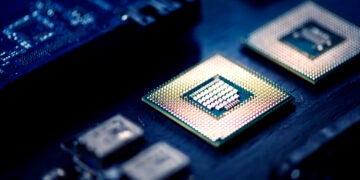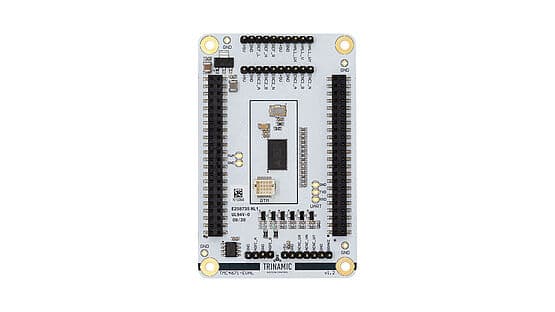
TMC4671 -Evaluation Board
Most circuit board designs can be considered custom, as most board development begins with the objective of solving a new problem or an old problem with a different set of performance criteria. In either case, the resulting board must go through the design⇒build⇒test (DBT) iterative process to produce a high-quality prototype or production level PCBA. This process can be done more efficiently when previously vetted sub-system designs are utilized.
The usage of a previously vetted design, when extended to system-level development, often means employing a reference design or evaluation board. There are a number of common reference boards such as Arduino, Raspberry Pi, and others that are used for the prototyping of new products. Although quite useful, these general boards are not applicable for cases where special processors, FPGAs, or specific functionality is required.
One such application is motor control, which necessitates sensing and feedback control. However, there are evaluation boards built specifically for this type of application, such as the Trinamic TMC4671-EVAL board. Let’s explore this development tool and how to optimize its utilization for your project.
The TMC4671 IC and Evaluation Board
The heart of the TMC4671 evaluation board is the TMC4671 servo controller. This QFN76 packaged IC is specifically designed to control 1ɸ brushed DC motors, brushless DC motors (BLDCs), 2ɸ stepper motors, and 3ɸ permanent magnetic synchronous motors (PMSMs). The flexibility in the types of motors that can be controlled is one of the major advantages of working with the TMC4671.
In order to perform these control functions, the controller is mounted on an evaluation board that includes the elements shown in the figure below, from the TMC4671-EVAL datasheet.
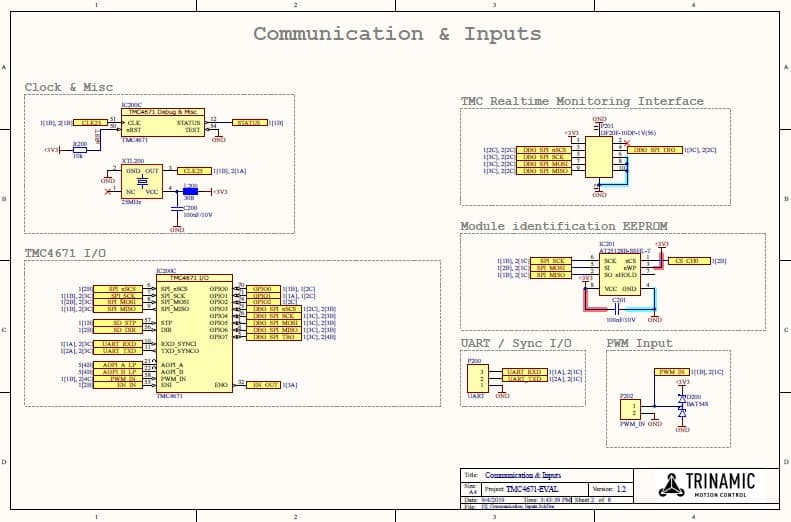
TMC4671 Schematic
As shown above, the board includes a 25 MHz clock, UART, PWM, SPI, and monitoring interfaces. This versatile evaluation board is utilized in a number of applications where motors are primary system elements.
Common Applications for the TMC4671
When working with the TMC4671, there are a number of datasheets available. However, the TMC4671-EVAL datasheet is probably the one that is most indispensable. This document not only includes all of the important characteristics and electrical parameters—discussed in the next section—but also provides helpful diagrams, such as the one below, that illustrate how to best implement the controller.
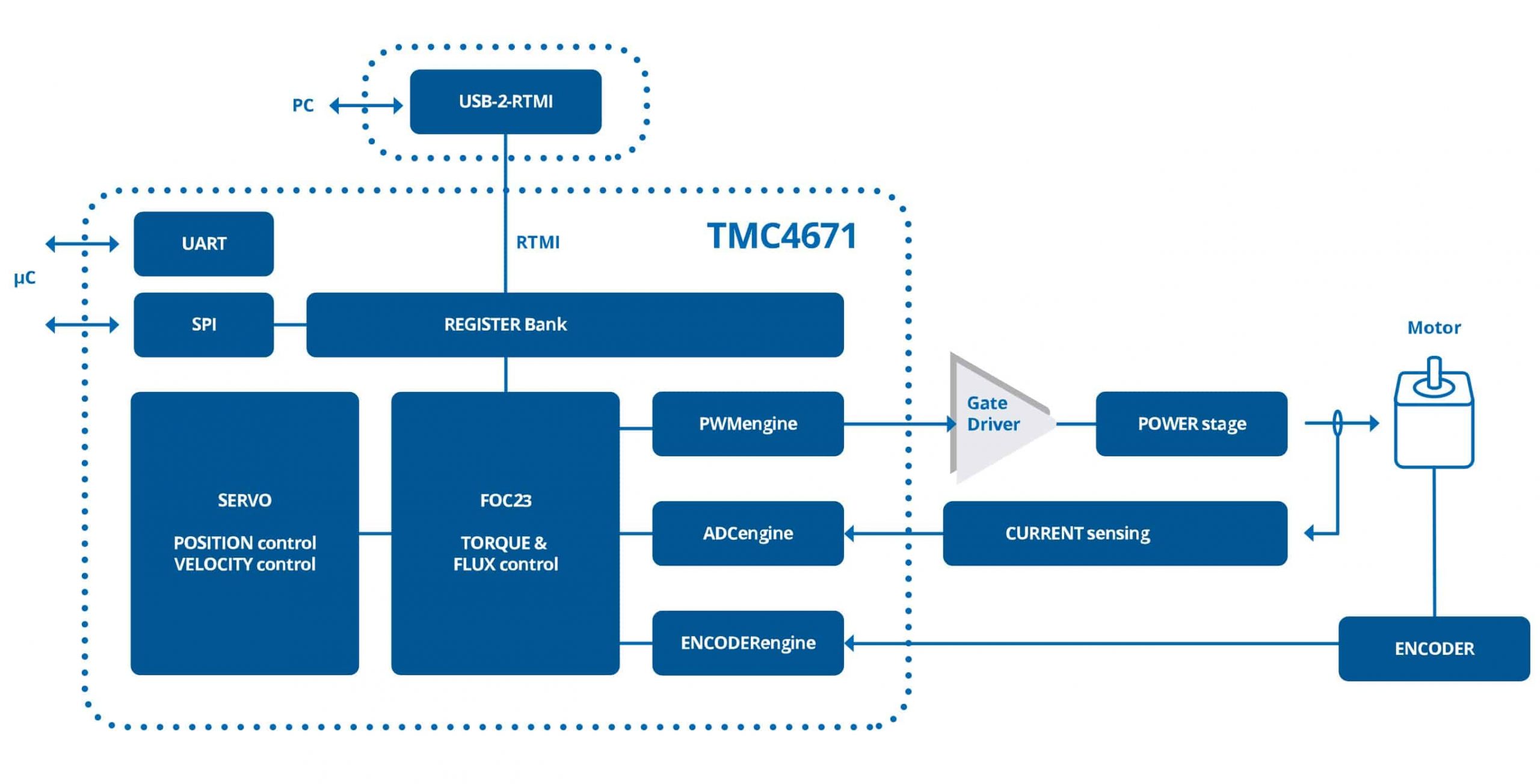
Motor control with the TMC4671
In addition to the block diagram of the TMC4671, the figure above graphically illustrates how feedback—the most important aspect of motor control—is performed. As shown, the output current (input to the motor) along with encoded sensor inputs from the motor comprise the feedback data that is captured and processed to determine the amount of error and necessary correction. Additionally, this datasheet gives detailed instructions for operating and controlling the single, two, and three-phase motors which are used in the systems for which this controller is commonly applied.
Common Applications for the TMC4671 Evaluation Board
- Pick and place machines
- Factory automation
- Laboratory automation
- Robotics
- Pumps
- Blowers
- E-mobility
As this list shows, the TMC4671-EVAL finds utilization in conventional and advanced industrial systems.
TMC4671 Parameters and Alternatives
The TMC4671 does have its constraints, including the maximum ratings shown below.
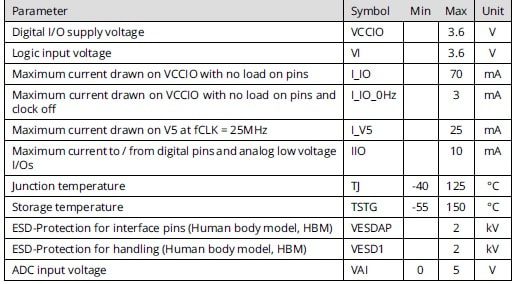
Maximum ratings for the TMC4671 from its datasheet
In addition to these max parameters, the DC characteristics must be kept within the ranges listed below.
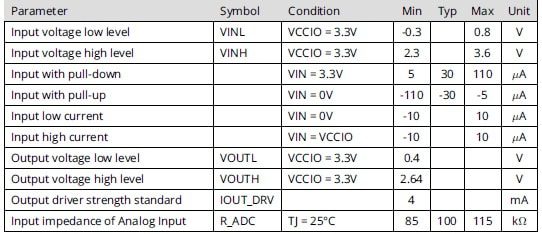
DC parameters for the TMC4671 from its datasheet
In the event that your application has requirements that do not fall within the parameters listed above, you may find a suitable replacement among the recommended alternatives offered by Trinamic.
Alternative Boards and Accessories
Trinamic provides several alternative TMC4671 boards, as well as accessories to help facilitate your development process. These include:
- TMC4671 Breakout Board (BOB)
This board is designed for fast prototyping.
- TMC 4671 with TMC6100 BOB
Here, the TMC6100 is used with the TMC4671 on one single board.
- TMC4671-LEV-REF
This board targets electric vehicle applications.
The use of a reference design is itself a means of performing more efficient development. However, programming the controller, ensuring its synchronization within larger systems, and MCAD integration are all development requirements that can be optimized.
Optimizing Your TMC4671 Development Process
The datasheets provided by Trinamic, together with their free development software, are mandatory assets when building systems that utilize the TMC4671-EVAL board. However, for system-level development, other concerns can cause delays and increase costs. For example, it is common for ECAD and MCAD model integration to require multiple back and forth conversations between electrical and mechanical development teams. However, this process can be significantly improved for the TMC4671 by utilizing reference design formats.
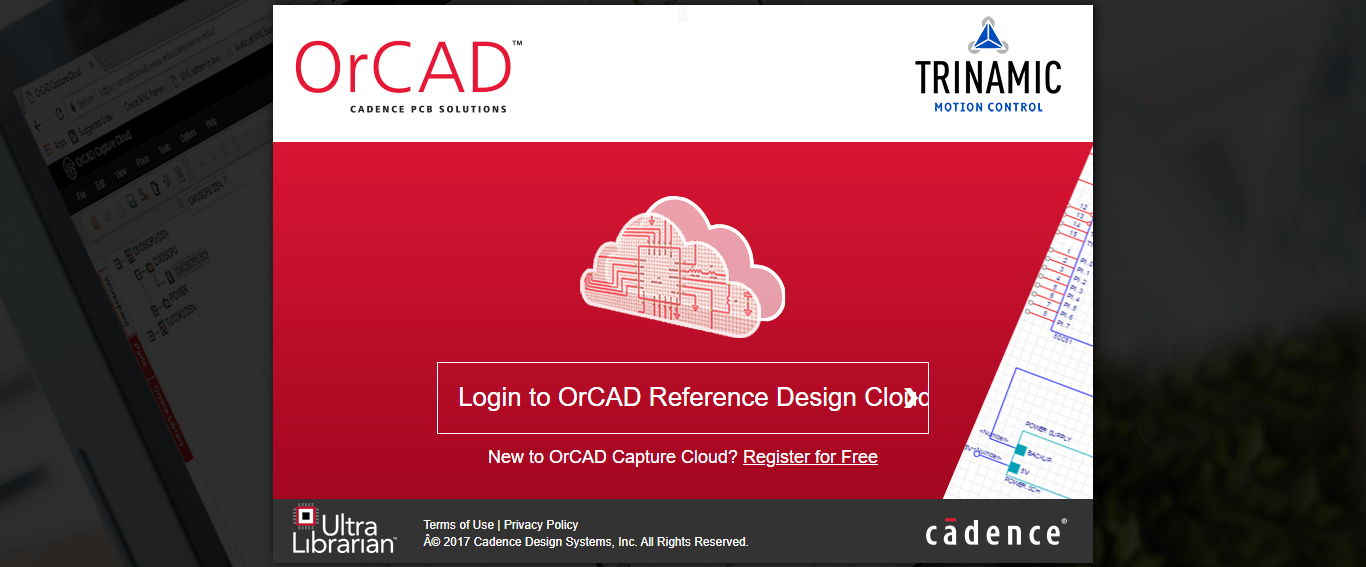
Getting OrCAD Reference Design Files from Ultra Librarian
As shown in the figure above, reference designs in formats for popular ECAD software tools, such as Cadence’s OrCAD, can be accessed along with all additional electronics parts to round out your TMC4671 system design from a single source. This approach is the best choice for optimizing your development process.
If you’re looking for CAD models for common components or popular ECAD applications, Ultra Librarian helps by compiling all your sourcing and CAD information in one place. Additionally, by working with Ultra Librarian you are assured that the design data you rely upon for reference and evaluation boards, such as the TMC4671, are accurate and coincide with manufacturer datasheet information. To get started, register today for free.



